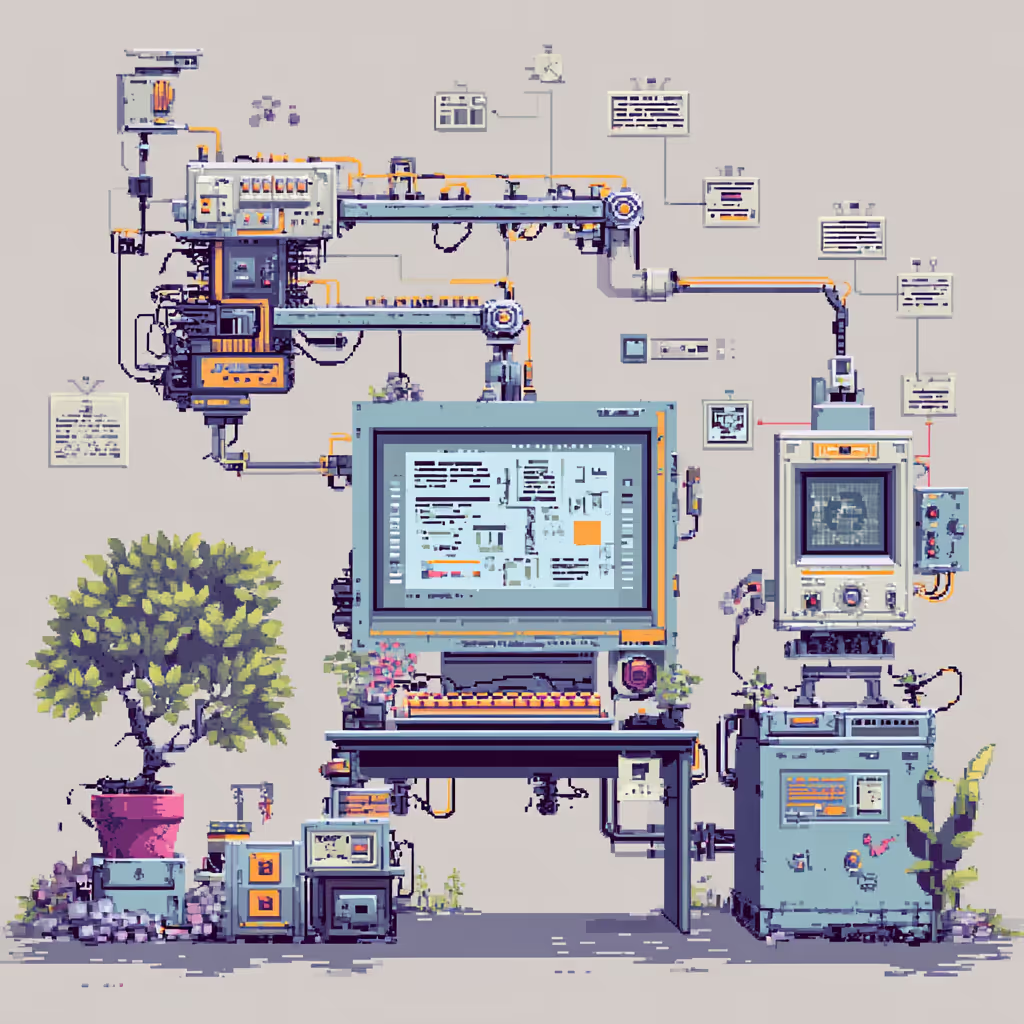In the rapidly evolving landscape of artificial intelligence, the concept of knowledge management has emerged as a pivotal element that can either propel businesses forward or hinder their progress. As we stand on the brink of a new era where AI is set to redefine the way we operate, understanding how knowledge is structured, accessed, and utilized within AI systems is crucial. This article delves into the intricacies of knowledge in AI, exploring its significance, challenges, and the transformative potential it holds for businesses.
The Importance of Knowledge in AI
Knowledge serves as the backbone of any AI system. It is the foundation upon which algorithms operate, making it essential for achieving accurate and relevant outputs. Without a well-structured knowledge base, AI systems struggle to deliver meaningful insights, leading to inefficiencies and errors.
Structured Context for Effective Reasoning
AI thrives on structured context. When knowledge is scattered across various platforms—be it emails, documents, or internal communications—the AI lacks the comprehensive understanding necessary to make informed decisions. This disconnection can lead to:
To combat these issues, businesses must prioritize the creation of a centralized knowledge repository that provides a single source of truth. This approach not only enhances the quality of AI outputs but also fosters a more cohesive operational environment.
Feedback Loops and Continuous Improvement
Another critical aspect of knowledge in AI is the establishment of feedback loops. Good AI systems learn and evolve over time, improving their outputs based on past performance. However, when knowledge is siloed, the AI cannot effectively close the loop between strategy and results. This leads to:
By integrating a robust knowledge management system, businesses can ensure that their AI tools continuously learn from real-time data, enhancing their effectiveness and relevance.
Challenges of Disconnected Knowledge
Despite the clear benefits of a well-structured knowledge base, many organizations still grapple with disconnected knowledge. This fragmentation can lead to significant challenges that impede the effectiveness of AI systems.
Organizational Blind Spots
Disconnected knowledge reinforces organizational blind spots. Without a shared knowledge base, assumptions go unchallenged, and valuable insights can be lost. This lack of visibility can result in:
To overcome these challenges, businesses must cultivate a culture of knowledge sharing and collaboration, ensuring that all team members have access to the information they need to make informed decisions.
Quality of Inputs and Outputs
The quality of inputs directly influences the quality of outputs in AI systems. When teams operate with partial or siloed knowledge, they often ask flawed questions, leading to:
To mitigate these risks, organizations must invest in training and resources that empower teams to ask the right questions and provide coherent inputs to their AI systems.
The Future of Knowledge in AI
As we look to the future, the role of knowledge in AI will only become more critical. The emergence of Cognitive Operating Systems (COS) promises to revolutionize how businesses manage knowledge and leverage AI for automation.
Cognitive Operating Systems: A New Paradigm
A COS will serve as a command center for AI, integrating various aspects of business knowledge into a cohesive framework. This system will enable:
By adopting a COS, businesses can streamline their operations, reduce complexity, and empower individuals to take control of their workflows, ultimately leading to a more efficient and effective organization.
Empowering Individuals and Small Teams
The future of business will likely see a shift towards smaller, more agile teams powered by AI. As the technology matures, individuals will be able to manage entire operations with the assistance of AI, transforming the traditional business model.
In this new landscape, knowledge will be democratized, allowing anyone with access to the right tools to harness the power of AI. This shift not only presents a multi-billion dollar opportunity but also challenges the status quo of how businesses are structured and operated.
Conclusion
In conclusion, the management of knowledge in AI is not just a technical challenge; it is a fundamental aspect of how businesses will operate in the future. By prioritizing the creation of structured, connected knowledge systems, organizations can unlock the full potential of AI, driving innovation and efficiency. As we move forward, embracing this change will be essential for any business looking to thrive in an increasingly automated world.
As we continue to explore the possibilities of AI, one thing is clear: knowledge is everything. It is the key to unlocking the future of business automation and ensuring that AI serves as a strategic partner rather than just a tool.
